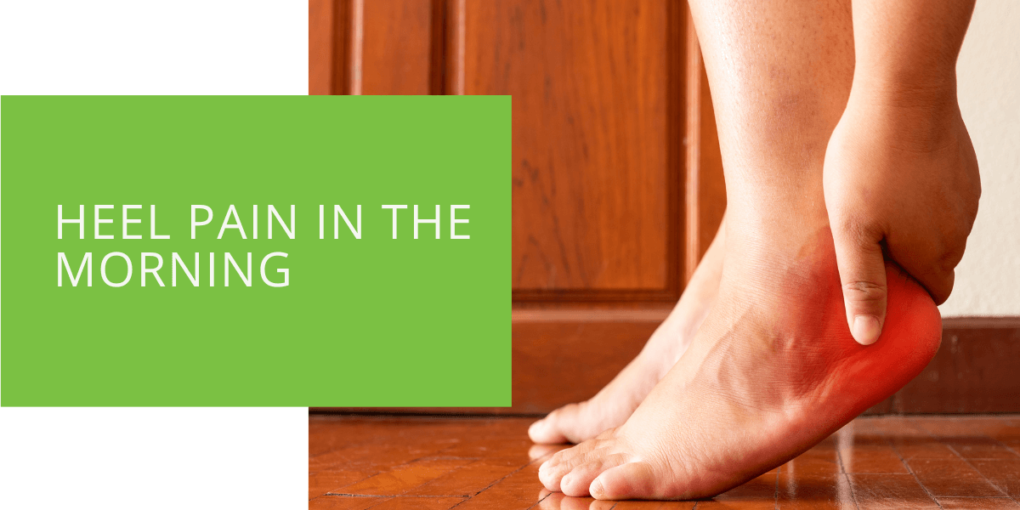Heel Pain in the Morning: Causes & Treatment
Heel pain is a common problem that can affect people of all ages. It can range from mild to severe and can be caused by various factors, such as overuse, injury, or underlying medical conditions. While heel pain can occur at any time of day, it is especially common in the morning when you first get out of bed. If you are experiencing heel pain in the morning, you are not alone. This article will delve into the possible causes of heel pain in the morning and explore treatment options to help alleviate your discomfort.
Possible Causes of Heel Pain in The Morning
There are several possible causes of heel pain in the morning. Some of the most common include plantar fasciitis, heel spurs, tendinitis, fractures, and other conditions such as arthritis and nerve problems. Let's take a closer look at each of these conditions.
Plantar Fasciitis
Plantar fasciitis is one of the most common causes of heel pain in the morning. It is a condition that occurs when the plantar fascia, a band of tissue that connects the heel bone to the toes, becomes inflamed. This inflammation can cause pain and swell in the heel and along the bottom of the foot.
The plantar fascia supports the arch of the foot and absorbs shock as we walk. If the plantar fascia becomes overworked or strained, it can become inflamed and lead to pain in the heel. This is particularly common in people who are on their feet, such as runners or those who work in jobs requiring standing for long periods.
Symptoms of plantar fasciitis often include pain in the heel that is worse in the morning, especially when you first take your first steps out of bed. The pain may also improve as you walk and warm up, but it may return after periods of inactivity. Some people with plantar fasciitis may also notice pain and stiffness in the foot and ankle after sitting for a long time.
Risk factors for developing plantar fasciitis include being overweight, having flat feet or high arches, wearing poorly fitting or worn-out footwear, and participating in high-impact activities.
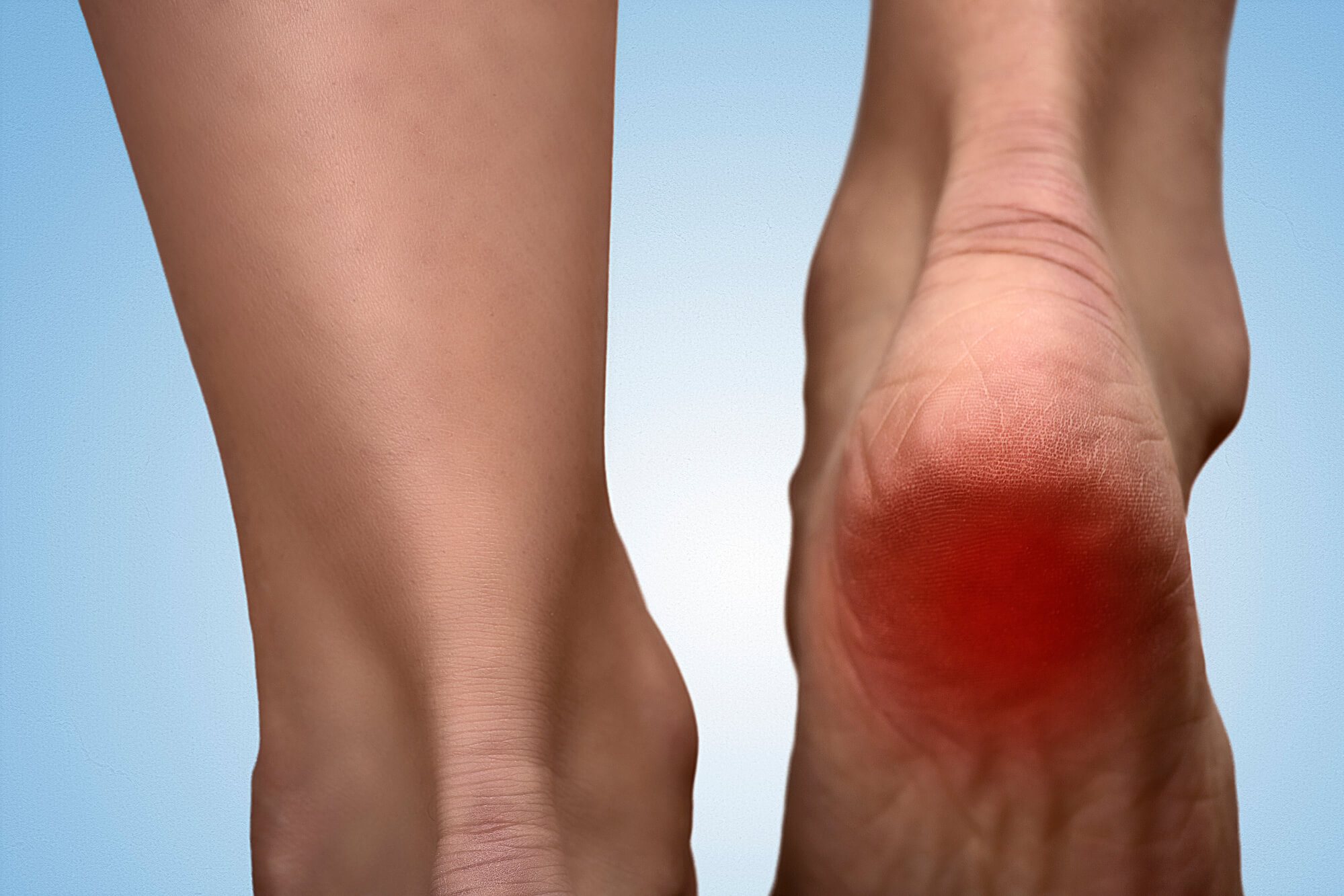
Heel Spurs
Another common cause of heel pain in the morning is heel spurs. Heel spurs are bony growths on the heel bone and can cause pain and inflammation in the foot and ankle. They are often the result of plantar fasciitis, as the body may try to repair the damaged plantar fascia by depositing extra bone.
Symptoms of heel spurs include pain in the heel, especially when you first take your first steps out of bed in the morning. You may also notice pain and swelling in the heel and the bottom of the foot.
Risk factors for developing heel spurs include being overweight, having flat feet or high arches, and participating in high-impact activities such as running. Wearing poorly fitting or worn-out footwear can also increase your risk.
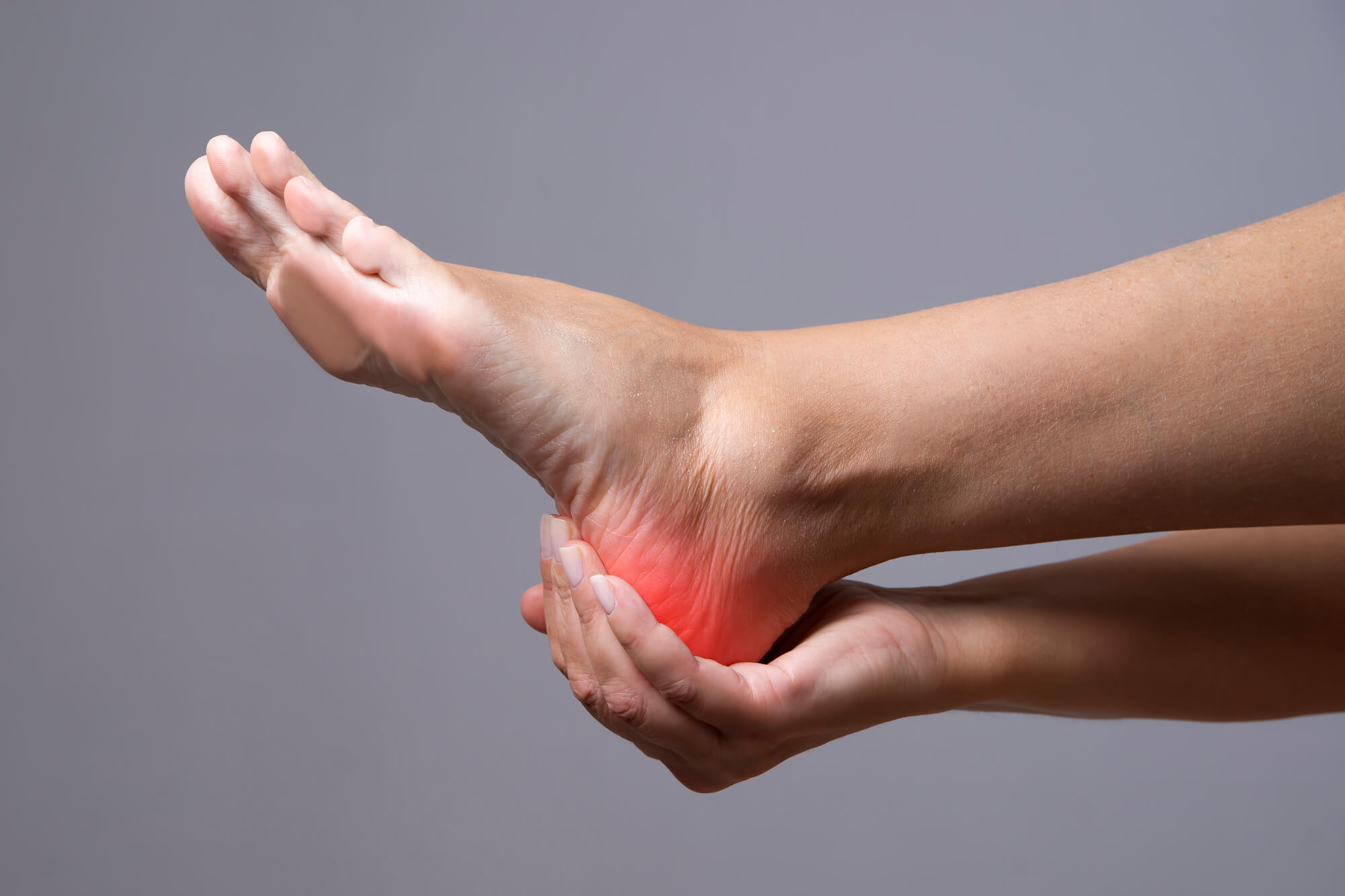
Tendinitis
Tendinitis is another common cause of heel pain in the morning. It is an inflammation of the tendons, which are the bands of tissue that connect muscles to bones. Tendinitis can occur in the foot and ankle and is often caused by overuse or repetitive strain injuries.
The Achilles tendon, which runs along the back of the ankle, is a common site of tendinitis in the foot and ankle. Symptoms of Achilles tendinitis include pain and swelling in the heel and ankle, especially when you first take your first steps out of bed in the morning. The pain may also improve as you walk and warm up, but it may return after periods of inactivity.
Other common sites of tendinitis in the foot and ankle include the peroneal tendons, which run along the outside of the ankle, and the posterior tibial tendon, which runs along the inner ankle. Symptoms of these types of tendinitis may include pain and swelling in the foot and ankle, as well as difficulty walking or standing for long periods.
Risk factors for developing tendinitis in the foot and ankle include being overweight, participating in high-impact activities such as running and wearing poorly fitting or worn-out footwear.
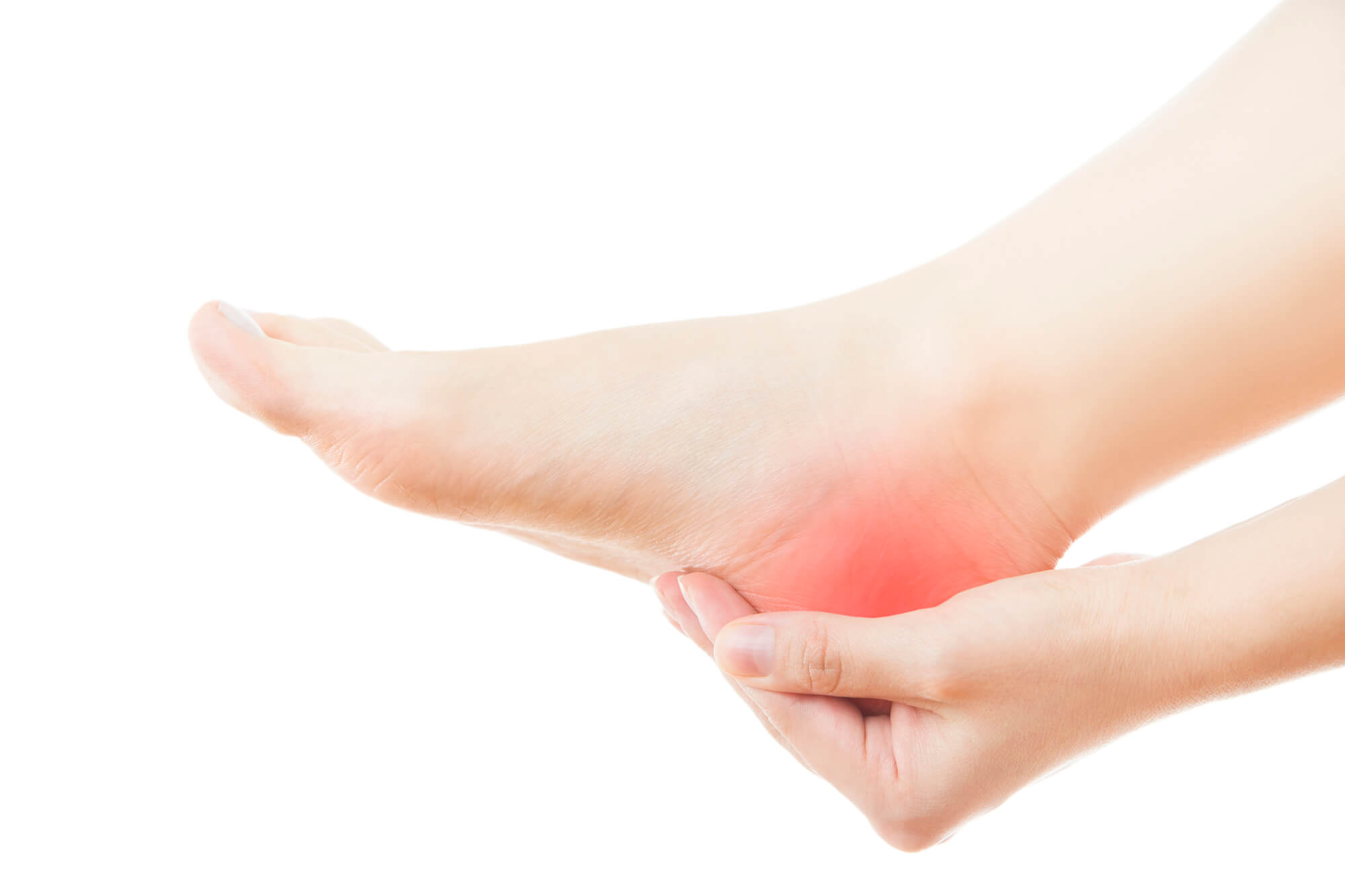
Fractures
Fractures, or broken bones, can also cause heel pain in the morning. Fractures can occur in the heel bone or in the foot and ankle bones. They are often the result of an injury, such as a fall or a direct blow to the foot, but they can also be caused by overuse.
Symptoms of a fracture in the heel or foot may include sudden, severe pain in the heel or foot, swelling, bruising, and difficulty walking or bearing weight on the affected leg.
Risk factors for developing a fracture in the heel or foot include being older and having osteoporosis, participating in high-impact activities such as running and having a previous history of fractures.
Other Conditions
Several other conditions can cause heel pain in the morning, including arthritis and nerve problems.
Arthritis is a condition that causes inflammation in the joints, which can lead to pain, stiffness, and swelling. Several types of arthritis can affect the foot and ankle, including osteoarthritis, rheumatoid arthritis, and gout. Symptoms of arthritis in the foot and ankle may include pain, stiffness, and swelling in the affected joints, especially when you first take your first steps out of bed in the morning.
Nerve problems, such as neuropathy, can also cause heel pain in the morning. Neuropathy is a condition that occurs when the nerves that carry messages between the brain and the rest of the body become damaged or diseased. This can cause pain, numbness, and tingling in the feet and ankles, as well as problems with balance and coordination.
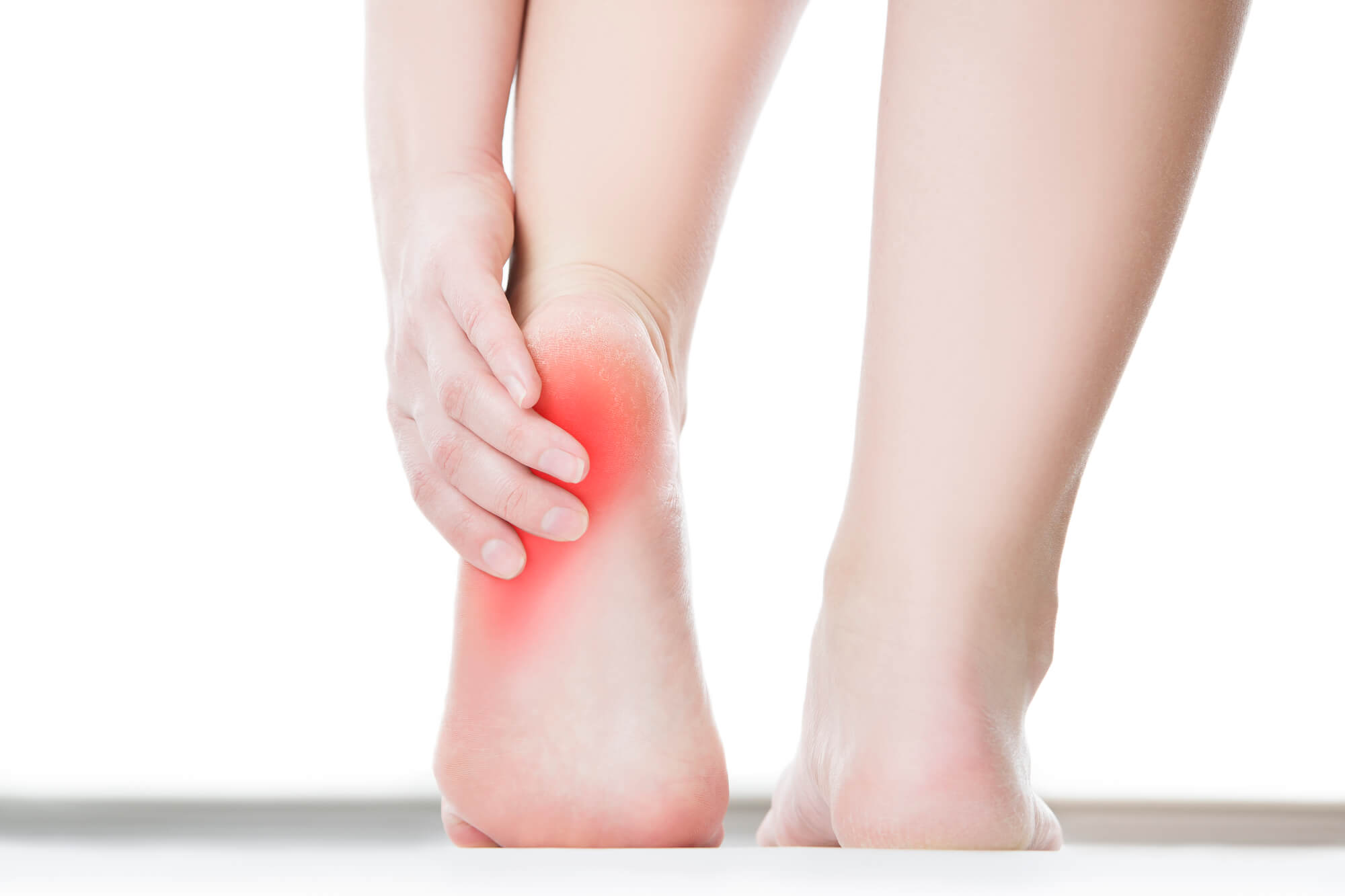
Treatment Options for Heel Pain in The Morning
If you are experiencing heel pain in the morning, several treatment options may help alleviate your discomfort. Non-surgical treatment options include stretching and strengthening exercises, orthotic inserts, ice and heat therapy, medications such as nonsteroidal anti-inflammatory drugs (NSAIDs), and physical therapy. Surgical treatment options are also available in some cases.
Non-Surgical Treatment Options
Non-surgical treatment options are often the first line of treatment for heel pain in the morning. These options can help reduce inflammation and improve your symptoms.
- Stretching and strengthening exercises: Stretching and strengthening exercises are often recommended to help alleviate heel pain in the morning. Stretching exercises can help loosen tight muscles and tendons while strengthening exercises can help support the foot and improve its stability. Your podiatrist or physical therapist can recommend specific stretches and exercises appropriate for your condition and needs.
- Orthotic inserts: Orthotic inserts are another non-surgical treatment option for heel pain in the morning. These inserts are placed inside your shoes and are designed to provide extra support and cushioning to the foot and ankle. They can help reduce the strain on the plantar fascia and other structures in the foot and ankle, which can help alleviate pain and improve your symptoms.
- Ice and heat therapy: Ice and heat therapy can also be helpful for reducing inflammation and easing pain in the heel and ankle. Applying ice to the affected area for 15-20 minutes several times a day can help reduce swelling and numb the area to reduce pain. Applying heat to the affected area for 15-20 minutes several times a day can help relax tight muscles and improve blood flow to the area.
- Medications: Medications, such as nonsteroidal anti-inflammatory drugs (NSAIDs), can also be helpful for reducing inflammation and easing pain in the heel and ankle. NSAIDs, such as ibuprofen and naproxen, can be taken orally or applied topically to the affected area. However, talking to your healthcare provider before taking any medications is important, as they can have potential side effects.
- Physical therapy: Physical therapy is another non-surgical treatment option that can be helpful for heel pain in the morning. A physical therapist can teach you specific stretches and exercises to help alleviate your pain and improve your symptoms. They can also provide hands-on treatment, such as massage and joint mobilizations, to help reduce inflammation and improve mobility.
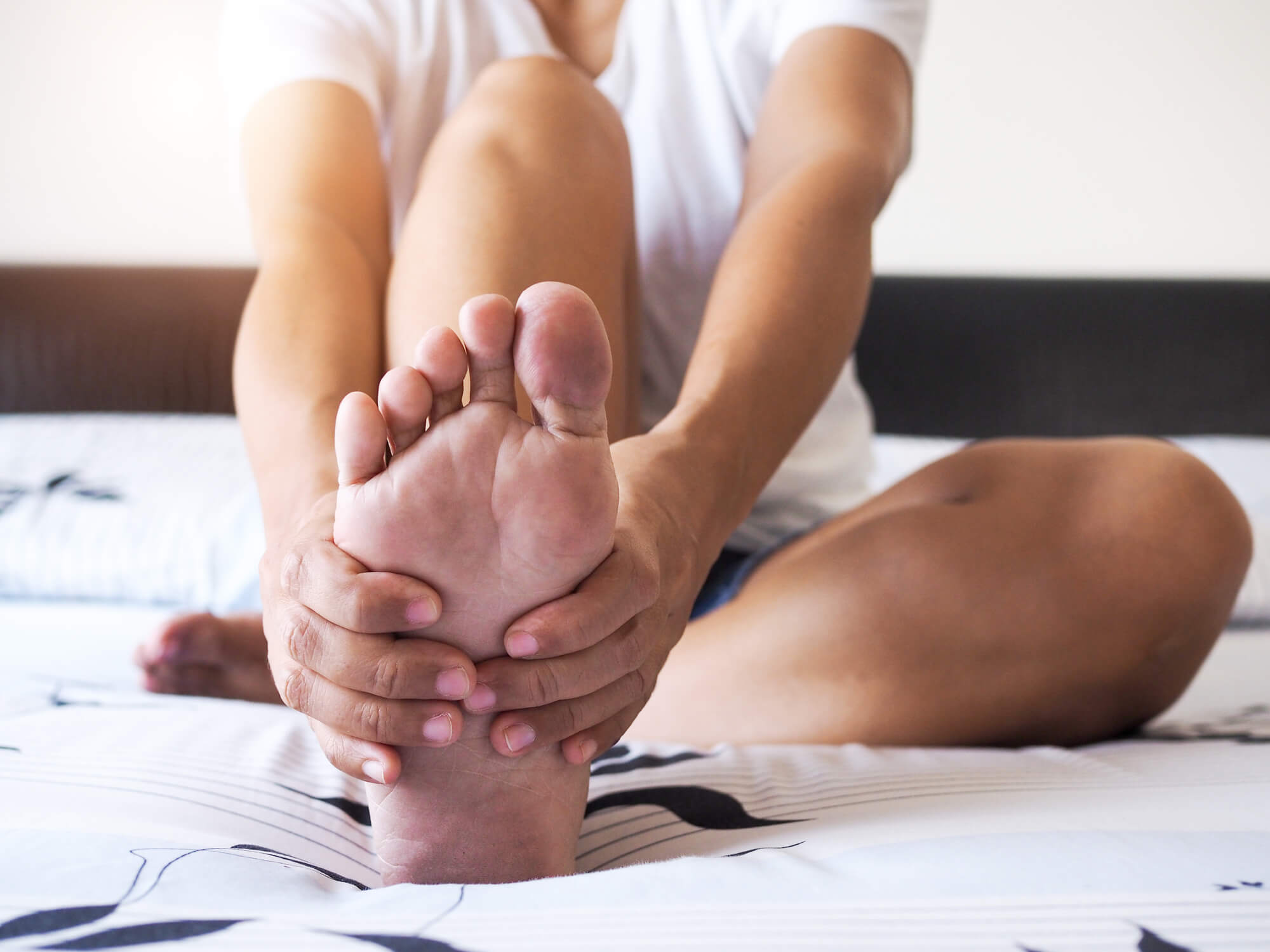
Surgical Treatment Options
In some cases, surgical treatment may be necessary to alleviate heel pain in the morning. Surgical options may be recommended if non-surgical treatment options are unsuccessful or the condition is severe.
Several surgical options may be used to treat heel pain in the morning, including plantar fascia release, heel spur removal, and tendon repair. Each option carries its risks and benefits, and discussing the potential risks and benefits with your surgeon before proceeding with surgery is important.
It is also important to note that surgery is not always a guaranteed solution for heel pain in the morning. In some cases, pain and other symptoms may persist even after surgery.
Conclusion
If you are experiencing heel pain in the morning, it is important to seek medical attention to determine the cause and receive appropriate treatment. There are a variety of possible causes of heel pain in the morning, including plantar fasciitis, heel spurs, tendinitis, fractures, and other conditions such as arthritis and nerve problems. Treatment options for heel pain in the morning include non-surgical options such as stretching and strengthening exercises, orthotic inserts, ice and heat therapy, medications, physical therapy, and surgical options in some cases.
To prevent heel pain in the future, it is important to wear proper footwear, maintain a healthy weight, and avoid overuse injuries by taking breaks and varying your activities. If you are experiencing persistent or severe heel pain, it is important to see a podiatrist or other foot and ankle specialist for further evaluation and treatment.

